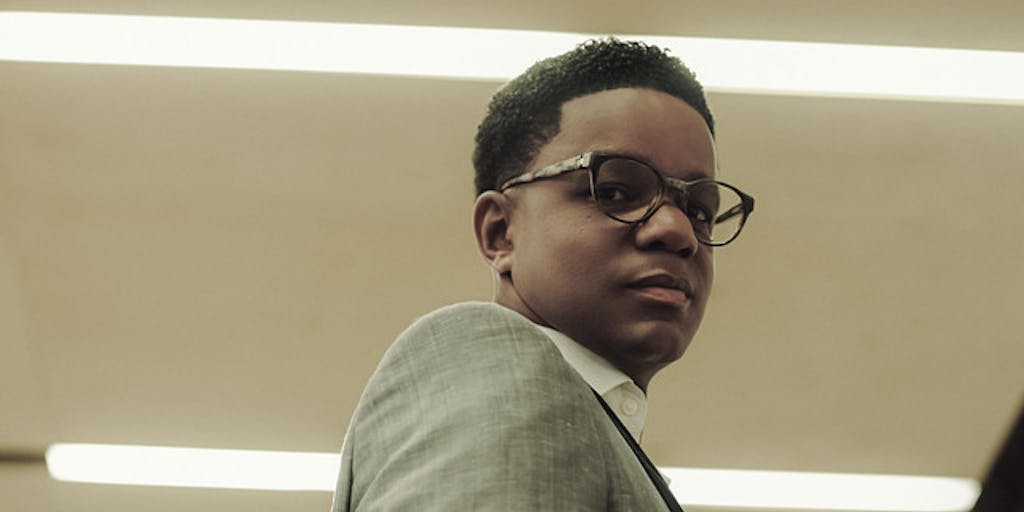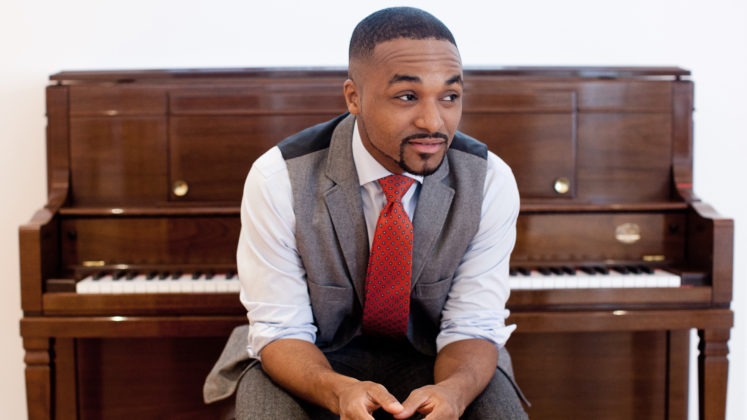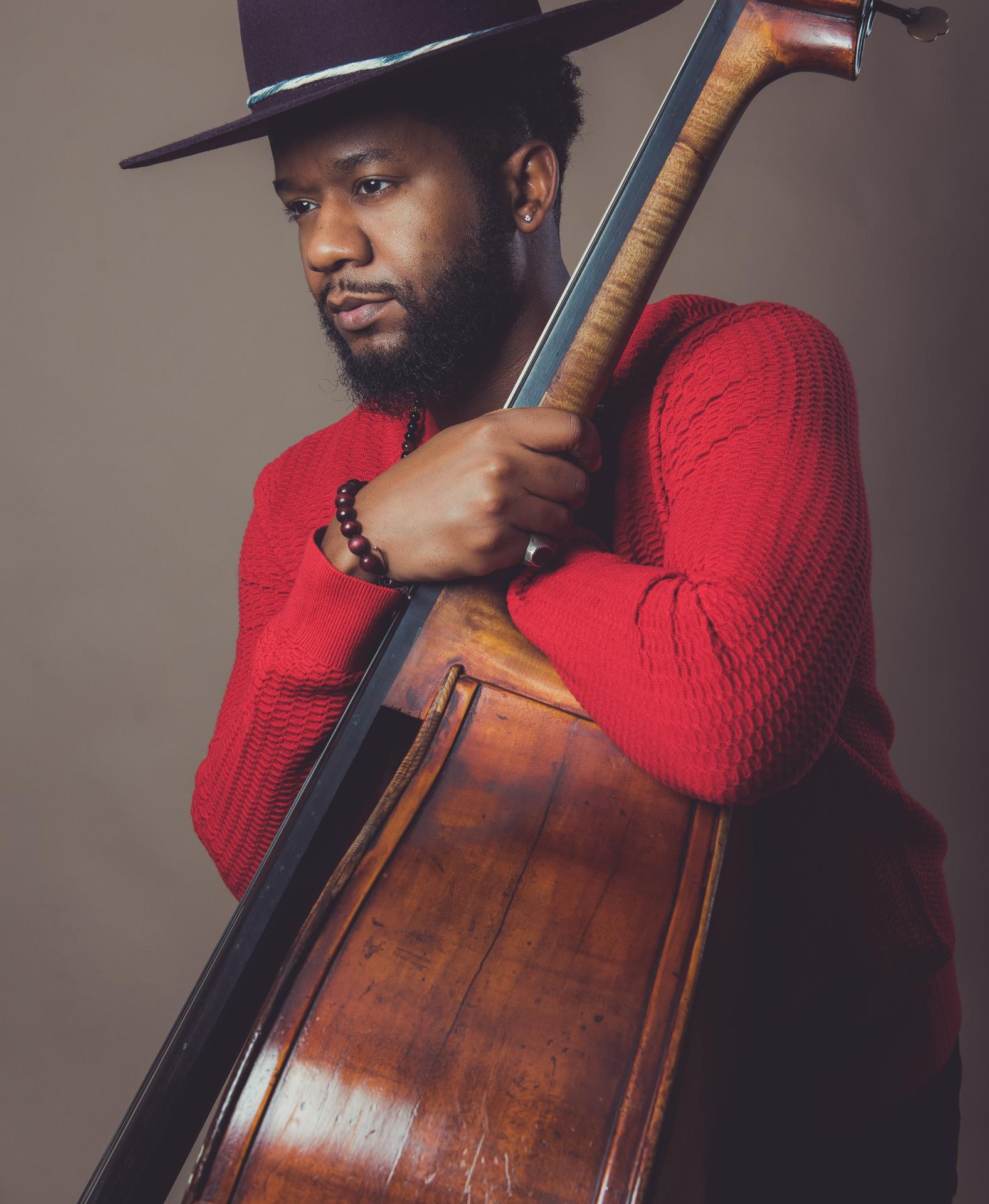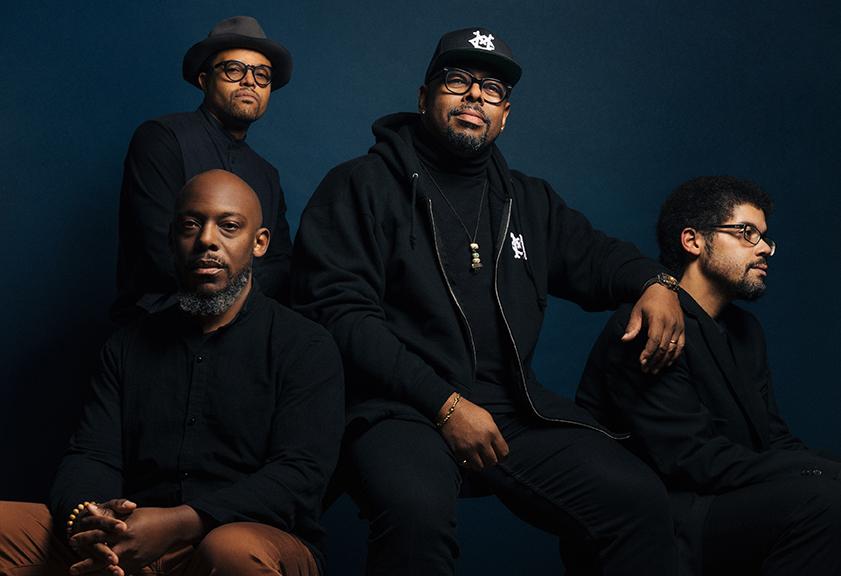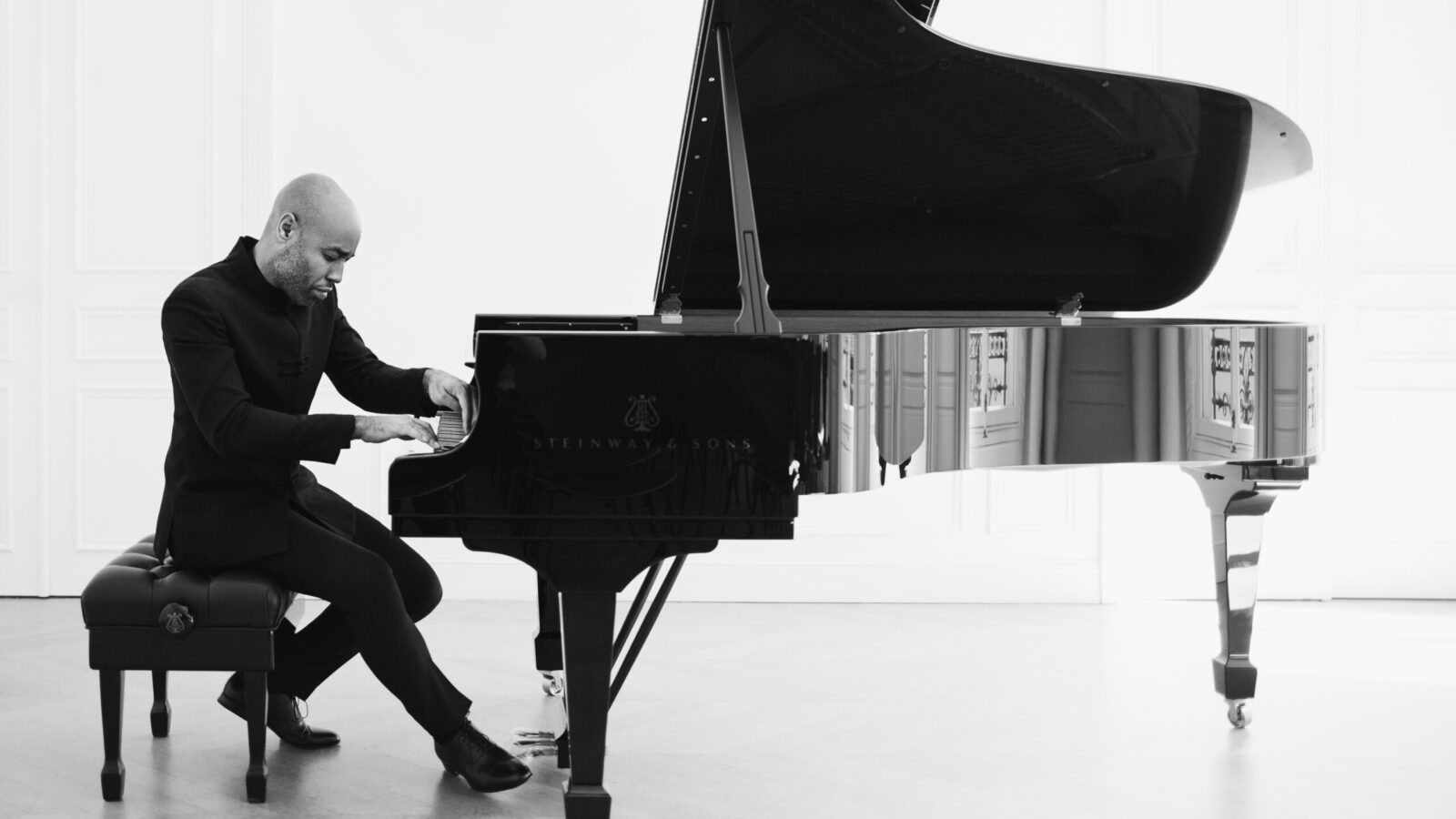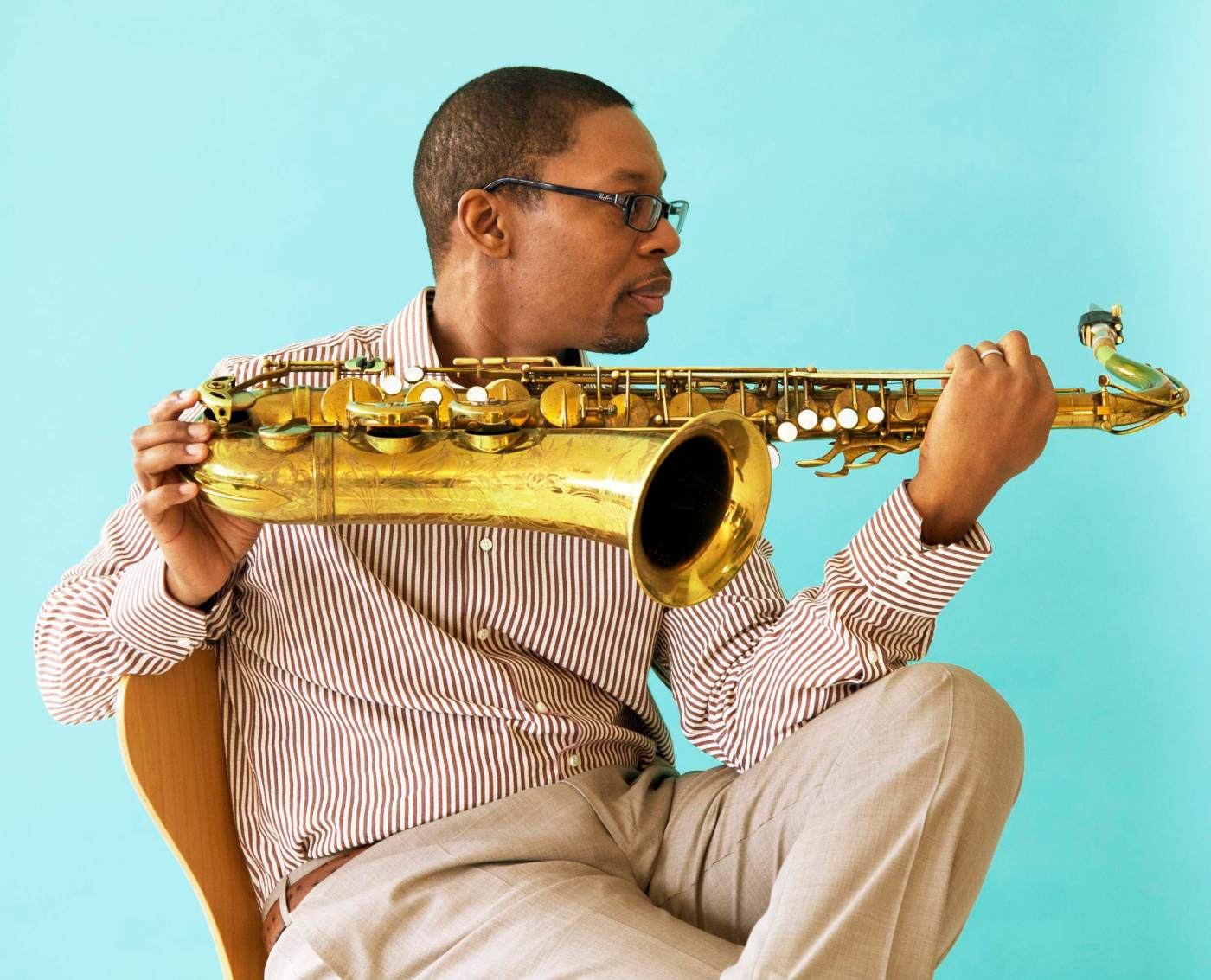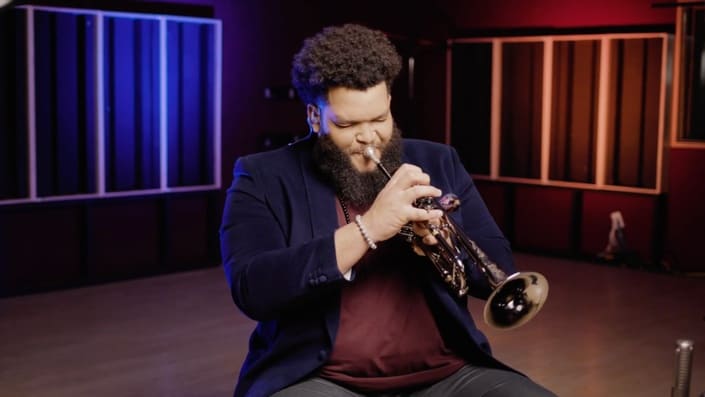 |
| Paradise Theatre Big Band Musical Director Kris Johnson |
Many nice things about the Paradise
Theatre Big Band are worth pointing out. Foremost, its musical director, the
trumpeter and Kresge Fellow Kris Johnson is an excellent composer, arranger,
and bandleader who never shies away from daring and ambitious projects. And he
understands the inner mechanics of a big band, having performed for nine years
with the legendary Count Basie Orchestra. Another aspect worth noting is the PTBB
is populated with some of Detroit's most formidable jazz talent, like
saxophonists Marcus Elliot and Kasan Belgrave, drummer Nate Winn, trumpeter
Anthony Stanco, pianist Brendon Davis, and other swing-savvy musicians who have
become household names in Detroit. So, Johnson had a lot of talent to work with
presenting his latest work, "Stop Apologizing for Being Human," which
premiered Friday evening at the Paradise Jazz Series in Orchestra Hall. Before
premiering the suite, the big band got the near-capacity hall juices boiling
with "Detroit 1970" and "Song of Peace," after which
vocalist Milton Suggs joined in, performing selections from a project he and
Johnson collaborated on a decade ago honoring the Harlem Renaissance poet Paul
Laurence Dunbar. Suggs's participation was a sharp left turn because two
numbers into the concert, Johnson had the audience believing the concert would
be devoted to the works of Detroiters and original compositions by the PTBB members.
But the first half of the concert was Suggs singing Dunbar's poetry
"Dream," Death Waltz," and "Anchored," which Suggs
sang magnificently. He has a heavy voice that spreads like warm honey all over
your eardrums. After intermission, the big band performed "Stop
Apologizing for Being Human." Here's where it felt like Johnson had
crammed two concerts into one. The solos by Solomon Parham and the baritone
saxophonist, Kaleigh Wilder were bragworthy. And percussionist Lauren Johnson's
solo was the crowd favorite. However, Brendon Davis and bassist Brandon Ross's lengthy
solos on the third movement epitomized unnecessary showboating. The worst thing
that could be pointed out about the concert was the overkill that made the
presentation seem unbalanced and needed editing. I'm still trying to make sense
of the inclusion of the visual artist Shanelle Harrison, positioned at the
corner of the stage, painting a female mannequin. As the 90-minute concert neared
its conclusion, I couldn't stop thinking about the Paradise Theatre Big Band's
potential, wondering if the band had a residency at a local venue how the band,
with all its seasoned and young talent, could someday be as sensational as the
Maria Schneider Orchestra, the Charles Tolliver Big Band, or even the Count
Basie Orchestra.
